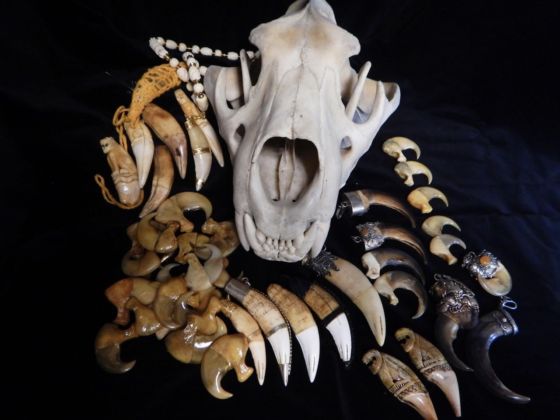It was an undercover operation worthy of a Hollywood script. An animal-parts smuggler was finally apprehended by government agents after he tried selling lion and tiger parts to a buyer in Thailand. Government agents started keeping tabs on Arogkron Malaskum in April 2016 when they received intelligence that he was in the market for a tiger skull. Posing as straw buyers — buyers who purchase something on behalf of someone else — undercover cops with the US Fish and Wildlife Service met with Malaskum in a hotel room in Dallas and initiated a faux professional relationship with him.


Smuggler Arrested for Sending $150K in Lion and Tiger Parts to Thailand
At an auction the next day, Malasukum arranged for the undercover agent to bid on several items, including body parts from an endangered African lion. Malasukum obtained the animal parts in Queens, New York, where they had been shipped. He then proceeded to remove the teeth from the lion’s skull, sorting them and other parts into separate packages to prevent losing them if the skull itself was confiscated by authorities. Inconspicuously labeling the boxes “dog toys” and “home decorations,” he then shipped them to a buyer in Thailand who makes jewelry trinkets and pendant necklaces.
The agents maintained their undercover personas for the next few years, gathering more evidence against Malasukum until he was finally charged in October 2017 for smuggling 68 packages of lion and tiger parts worth $150,000. Last week, he was sentenced to nine months in prison for trafficking endangered wildlife.
Unfortunately, the Malasukum case is not unique. The heightened spotlight on animal-parts smugglers stems from a more widespread concern regarding illegal trade in rhinoceros horns and elephant ivory. Dozens have been convicted of trafficking rhino horns from Africa, incurring over $2.1 million in total fines. The recent increase in demand for these animal parts has led to a spike in poaching incidents, especially for rhinos, elephants, and tigers.
Shennie Patel, a trial attorney in the Justice Department’s environmental crimes section, told National Geographic, “The more rare an animal becomes, the more interest there is for trinkets.” If this trend continues, Patel added, “we’re reaching a point where we are going to lose the tigers in a few years, and lions will be on their way too.”
H/T: National Geographic